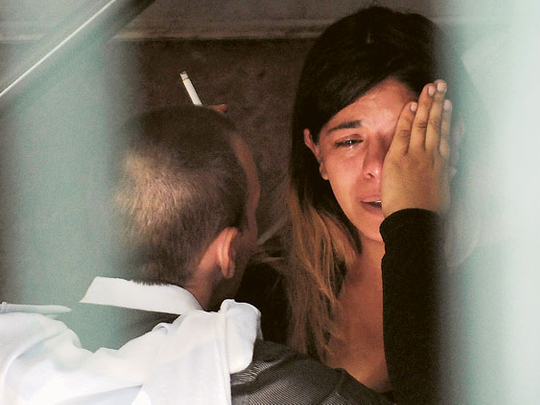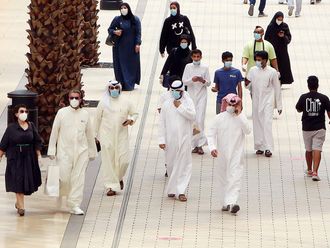
Buenos Aires, Argentina: Argentina's deadliest train accident in decades was foreseeable and preventable, the nation's auditor general has said.
Years of failed safety tests and other problems had given the government more than enough reason to cancel the train operator's concession.
Others pointed to high-level corruption: years-old allegations still awaiting trial that a former transportation secretary took free vacations and other gifts from executives of the Trains of Buenos Aires company in exchange for favourable treatment.
The TBA blamed government price controls, saying that keeping fares to less than 25 cents a ride made it impossible to finance improvements.
Rail safety experts, meanwhile, said modern trains are built to withstand the kind of hard stop that killed 50 passengers and injured more than 700 on Wednesday.
Newer cars resist the accordion-like crumpling that shoved hundreds into a jumbled mass of limbs, metal and blood in the first two cars when the commuter train hit a shock-absorbing barrier at less than 20km/h. But these cars were more than four decades old, "Toshiba Classics" that were refurbished after being cast off by other urban systems.
President Cristina Fernandez declared two days of mourning and sent at least four Cabinet ministers out to give news conferences describing the government's response to the tragedy. None took questions.
One man who might explain why passengers said he repeatedly struggled with the train's brakes before the accident — motorman Marcos Antonio Cordoba, 28 — remained in intensive care and had yet to make a statement.
Final stop
The current transportation secretary, Juan Pablo Schiavi, said the train's speed while approaching its final stop at the busy downtown Once station was normal, that the motorman was already slowing and that he should have been able to stop during the final 40 metres from the point where the speed was last recorded. "Those last 40 metres today remain a mystery," Schiavi said.
The crash happened after Cordoba had travelled the length of the Sarmiento line — 14 stations. Before him, another motorman had driven the same route ten times, since 2:45am. Union leaders said the train was in good condition when checked the day before.
Auditor-General Leandro Despouy, however, said TBA had been failing safety requirements since 2002. Many of these compliance problems were raised in an extremely critical report in 2008, which recommended ending the concession granted to TBA in 1995 during Argentina's privatisation era.
"Back in 2008 we had verification of dramatic and alarming brake problems," Despouy said. The body of Sofia Peralta, 19, also turned up at the morgue, while her brother Fernando, 18, was hospitalised with multiple leg fractures and damage to his arm and face.
"When he woke up, he remembered first his sister. We told him Sofia was gone. He looked at us for a while, then he went very quiet," their uncle Daniel Peralta said. The siblings worked together as telemarketers at Nextel and took the train together every day, he said. "They were always together," Peralta said.
With the crash still unexplained, Thursday's commute was unnerving for some of the millions of people who have to ride the city's trains each day.












